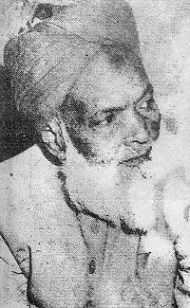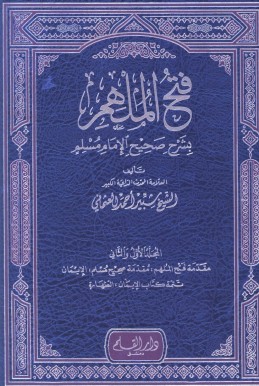In Islam, duʿāʾ is a prayer of invocation, supplication or request, asking help or assistance from God. Duʿāʾ is an integral aspect of Islamic worship and spirituality, serving as a direct line of communication between a believer and Allah. Unlike the formal five daily prayers (Salah) which have specific timings and rituals, duʿāʾ is more flexible and can be made at any time and in any place. Through duʿāʾ, Muslims affirm their dependence on Allah and their trust in His wisdom and mercy.

The Barelvi movement, also known as Ahl al-Sunnah wal-Jama'ah is a Sunni revivalist movement that generally adheres to the Hanafi school of jurisprudence, and Maturidi and Ash'ari schools of theology with hundreds of millions of followers, and it encompasses a variety of Sufi orders, including the Chistis, Qadiris, Suhrawardis and Naqshbandis as well as many other orders of Sufism. They consider themselves to be the continuation of Sunni Islamic orthodoxy before the rise of Salafism and the Deobandi movement.

Shaykh al-Islām was used in the classical era as an honorific title for outstanding scholars of the Islamic sciences. It first emerged in Khurasan towards the end of the 4th Islamic century. In the central and western lands of Islam, it was an informal title given to jurists whose fatwas were particularly influential, while in the east it came to be conferred by rulers to ulama who played various official roles but were not generally muftis. Sometimes, as in the case of Ibn Taymiyyah, the use of the title was subject to controversy. In the Ottoman Empire, starting from the early modern era, the title came to designate the chief mufti, who oversaw a hierarchy of state-appointed ulama. The Ottoman Sheikh al-Islam performed a number of functions, including advising the sultan on religious matters, legitimizing government policies, and appointing judges.

Mishkat al-Masabih by Walī ad-Dīn Abū ʿAbd Allāh Muḥammad ibn ʿAbd Allāh al-Khaṭīb at-Tibrīzī (d.1248) is an expanded and revised version of al-Baghawī's Maṣābīḥ as-Sunnah. Khaṭīb at-Tibrīzī rendered this version of the original text more accessible to those not having an advanced knowledge of the science of hadith.

Nur ad-Din Abu al-Hasan Ali ibn Sultan Muhammad al-Hirawi al-Qari, known as Mulla Ali al-Qari was an Islamic scholar.
Mufti Ghulam Rasool Jamaati was a Sunni Hanafi Islamic scholar. He is accepted by his followers as the Grand Mufti of Great Britain.

Muḥammad Shafī‘ ibn Muḥammad Yāsīn ‘Us̱mānī Deobandī, often referred to as Mufti Muhammad Shafi, was a Pakistani Sunni Islamic scholar of the Deobandi school of Islamic thought.

Ghousavi Shah is a Muslim Sufi Mystic Teacher, Writer and Columnist said to be famous as a great humanist in south India.
Abul Wafa Syed Mahmūd Shah al-Qadri al-Hanafi al-Afghani (1893–1975), also known as Abu Wafa Al Afghani, was a Hyderabad-based Afghani Islamic scholar, Hanafi faqih, and researcher.

Idris Kandhlawi was a Pakistani Sunni scholar during the mid-twentieth century, widely recognized for his contributions to various fields of Islamic studies, including hadith, Quranic studies, Islamic jurisprudence, Prophetic biography, and theology. Holding the titles of Sheikh al-Hadith and Sheikh al-Tafsir, he traced his lineage to Abu Bakr on his father's side and Umar on his mother's side. He studied in Thana Bhawan under Ashraf Ali Thanwi. He studied hadith, first at Mazahir Uloom under Khalil Ahmad Saharanpuri, and later at Darul Uloom Deoband under Anwar Shah Kashmiri. He started his professional career at Madrasa Aminia and later went to Darul Uloom Deoband. In 1929 he took a position in Hyderabad State, where he had access to the Asafia Library. This experience enabled him to produce a five-volume Arabic commentary on Mishkat al-Masabih titled Al-Taleeq al-Sabeeh, of which the first four volumes were published in Damascus. His scholarly work garnered recognition in the Arab world. He later assumed the roles of Sheikh al-Tafsir at Darul Uloom Deoband and Sheikh al-Hadith wa al-Tafsir at Jamia Ashrafia. In addition, he served as the Chancellor of Islamia University of Bahawalpur during its tenure as Jamia Abbasia.
Qutb ud-Din Ahmad ibn ʿAbd-ur-Rahim al-ʿUmari ad-Dehlawi, commonly known as Shah Waliullah Dehlawi, was an Islamic Sunni scholar and Sufi of the Naqshbandi order, who is seen by his followers as a renewer. He emphasized the importance of following Sharia and believed in the unification of Hanafi and Shafi'i schools of law, aiming to reduce legal differences.
Gibril Fouad Haddad is a Lebanese-born Islamic scholar, hadith expert (muhaddith), author, and translator of classical Islamic texts. He was featured in the inaugural list of The 500 Most Influential Muslims and has been called "one of the clearest voices of traditional Islam in the Western world", a "prominent orthodox Sunni" and a "staunch defender of the traditional Islamic schools of law." He holds ijazas from over 150 scholars across the Muslim world. He was a visiting fellow (2013-2015) then senior assistant professor (2015-2018) at the Sultan Omar Ali Saifuddin Center for Islamic Studies, Universiti Brunei Darussalam. He is also a staunch critic of Wahhabism and Salafism.

Zafar Ahmad Usmani, was a 20th Century Sunni Muslim Jurist who became an influential figure of the Hanafi school of Sunni jurisprudence's Deobandi Movement. He also was a prominent Pakistan Movement activist.

Badhl al-Majhud fi Hall Sunan Abi Dawud is a detailed arabic commentary on Sunan Abu Dawood, authored by Khalil Ahmad Saharanpuri. Widely acclaimed as the foremost work of its kind, it is esteemed by Islamic scholars worldwide. Completed over a decade in Medina, this book is an indispensable resource for those seeking to understand the nuances of Sunan Abu Dawood. In addition to providing clarification on Sunan Abu Dawood, Saharanpuri's commentary scrutinizes and analyzes narrations and traditions from other hadith books, making it an invaluable reference work. Saharanpuri's commentary is characterized by impartiality and balance, presenting both sides of controversial issues with clarity and objectivity. The author supports his arguments with evidence, without showing any bias towards either perspective, making it a fair and comprehensive analysis of Sunan Abu Dawood and related traditions.

Fath al-Mulhim bi-Sharh Sahih al-Imam Muslim is a three-volume Arabic commentary on Sahih Muslim, written by Shabbir Ahmad Usmani before 1916. Usmani commenced the writing of the book in 1914 due to the absence of commentaries on Sahih Muslim, unlike Sahih al-Bukhari, which had commentaries according to the Hanafi school. He dedicated himself to bridging this gap and continued his work until his demise. He was only able to complete three volumes of the book before his passing. The first and second volumes were published in 1933 and 1935 respectively, while the third volume was published in 1939. Taqi Usmani later took up the task of completing the remaining portions of the book in 1976, ultimately finishing it in 1994 in six volumes known as Takmilah Fath al-Mulhim bi-Sharh Sahih al-Imam Muslim.

Al-Taleeq al-Sabeeh ala Mishkat al-Masabih is a multi-volume commentary on the hadith collection known as Mishkat al-Masabih. It was written by Idris Kandhlawi in Arabic and first published in Damascus in 1935. The commentary aims to assist readers in studying and comprehending the hadiths in a scholarly manner. It covers various topics related to hadith sciences, such as the classification of hadiths, principles of hadith criticism, the reliability of narrators, and the criteria for accepting a hadith as authentic.

Zakariyya Kandhlawi was a traditionalist Sunni scholar and an authority in the study of hadith during mid-twentieth-century India. He was also known as Sheikh al-Hadith and was an ideologist of Tablighi Jamaat. He wrote in Arabic and Urdu, and did not copyright his publications. He began writing at the age of 20 while a student. After completing his studies, he became a teacher at Mazahir Uloom in 1917. During this period he collaborated with Khalil Ahmad Saharanpuri on Badhl al-Majhud, which was the foundation of his lifelong study of Hadith. He wrote 103 works, 57 in Arabic and 46 in Urdu. His Fada'il series has been translated into multiple languages and served as resources for the Tablighi Jamaat.
Abul Hasanat Sayyid Abdullah Shah Naqshbandi Qadiri also known as HadratAbdullah Shah Sahib, was a scholar of Islam and spiritual reformer. He is more particularly known as a muhaddith, honorifically as Muhaddith-e Dakkan. His contributions to Islamic scholarship and spirituality have left a lasting impact. His scholarly contributions include extensive writings on Islamic jurisprudence (fiqh) and his best-known work, Zujajat al-Masabih, which is a comprehensive collection of Hadiths aligned with the Hanafi school of law, compiled into five volumes.

Omar Abedeen Qasmi Madani is an Indian Islamic scholar, mufti, and writer who serves as the deputy director of Al Mahadul Aali Al Islami, Hyderabad. He is an alumnus of Darul Uloom Sabil-us-Salam of Hyderabad, Darul Uloom Deoband, Al Mahadul Aali Al Islami, Maulana Azad National Urdu University, Osmania University, and the Islamic University of Madinah. He has written several books, including Uloom-ul-Hadīth, Hindustān Mein Islam Ki Aamad Aur Ishā'at, Huqūq Aur Unki Kharīd-o-Farokht, Qurān-e-Karīm: Aadāb o Ahkām, and Ulama-e-Hind Ki Chand Aham Qurani Khidmāt.













